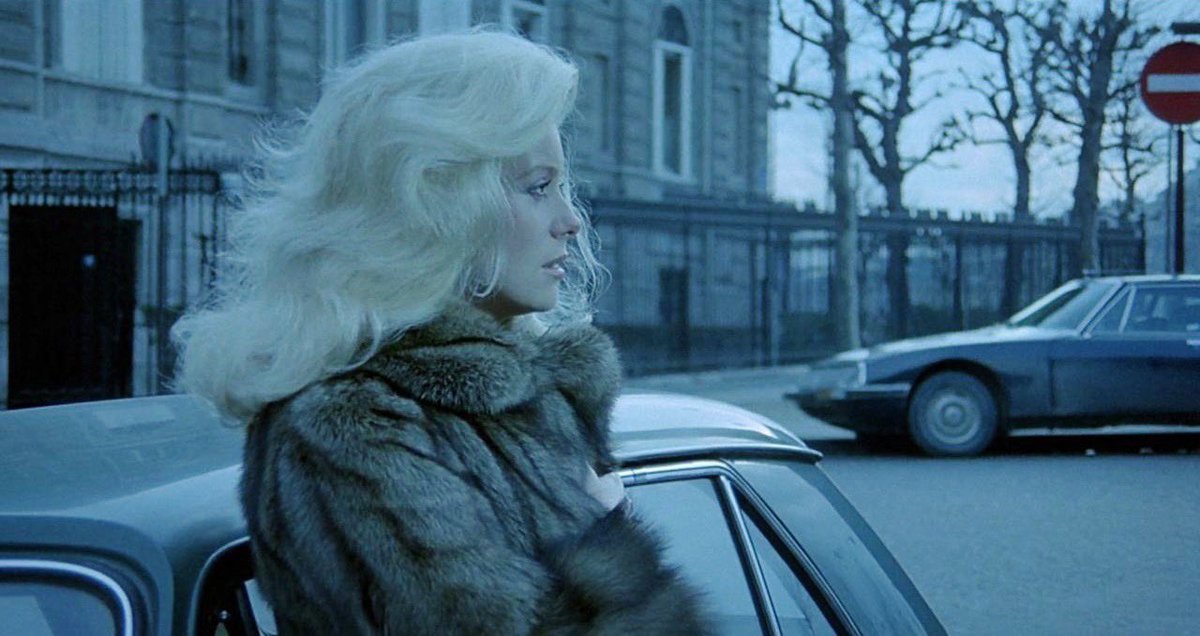Un flic (1972) Review
Catherine Deneuve in Un Flic (1972): icy shades of blue mark the elegiac goodbye of Jean-Pierre Melville
Jean-Pierre Melville’s Un flic, another of his ventures in noir territory and his final film, is a good, crafty thriller. It would have profited more if it had fully embraced its bluesy moods instead of dedicating itself to its more commonplace cop-robber elements.
The finest moment in the film is when Alain Delon’s character, Commissaire Coleman, plays mournfully the piano at an empty nightclub with a cigarette in his mouth, being watched by his former lover – and the main robber’s lover – the stunning Cathy, Catherine Deneuve of royal exuberance and detached beauty, a most glacial semblance underlining a heated past about to reemerge. It’s a slow, intense, and perfectly acted and directed moment, and the rest of the film cannot keep up with this.
The heist on a moving train with a helicopter hovering over above shows technique, film craft, but it’s not as thrilling as it should be because we do not care about the robbers all that much. Delon and Deneuve, that’s where it’s at, and Melville seemed to have missed it. The pair carries the film with a few subtle glances and a subdued presence, in tune with the blueish, wintery cinematography. At these moments, Un flic is a precursor to Blade Runner (1982), which takes such an emphasis on mood and melancholic music and turns into an existence.
The first scene – a bank robbery during a torrential rain in a seaside small town – promises an atmosphere and a feeling we only get in a few subsequent moments, like the aforementioned. Too much plot, too little story and feeling. Melville, arguably the greatest post-war French director, who nailed it in Bob le flambeur (1956), Léon Morin, priest (1961), and, especially, Army of Shadows (1969), did not recognize where the greatest of Un flic was to be found. A missed shot at a great noir.


